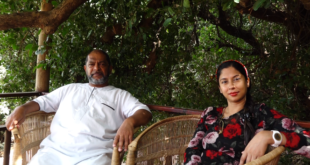In this segment of the discussion, the speakers engage in a detailed exploration of the upcoming public event in Constantia, Cape Town, which is themed “Africa Exit the Coup Towards the Great Reset.” They underscore Africa’s pivotal role in challenging the World Health Organization’s (WHO) overreach, drawing parallels to the continent’s historical struggle against apartheid and injustice. There is a palpable sense of urgency as they outline various strategies aimed at resisting the WHO’s encroachment on health, freedom, and sovereignty.
A prominent theme that emerges is the need to raise awareness among diverse stakeholders, including individuals, communities, religious leaders, healthcare professionals, legal experts, media personnel, and politicians who demonstrate integrity and credibility. The speakers emphasize the importance of shedding light on the WHO’s power grab and the detrimental impact it poses to global health governance. They discuss the drafting of an “exit the WHO withdrawal bill” and the upcoming parliamentary debate as crucial steps in challenging the WHO’s authority.
Amidst skepticism about politicians’ responsiveness, the speakers argue that political engagement remains essential. They highlight efforts to showcase politicians worldwide who have taken a stand against the WHO’s power grab, signaling a growing movement within legislative bodies to resist undue influence. Moreover, they stress the significance of grassroots activism in influencing political discourse and electoral outcomes.
The conversation delves into the WHO’s susceptibility to corporate capture, citing conflicts of interest within the organization and its foundation. They point out the influence of pharmaceutical giants and financial institutions in shaping global health policies, illustrating how vested interests undermine public health objectives. The speakers emphasize the need for a paradigm shift in global health governance, advocating for decentralized approaches that prioritize public health over corporate profits.
As they prepare for the public event, one speaker reflects on their research, which exposes the WHO’s complicity in advancing corporate agendas. They discuss the WHO Foundation’s ties to pharmaceutical companies and financial entities, revealing a web of influence that subverts public health priorities. Additionally, they scrutinize key policymaking bodies and highlight the co-option of influential figures by corporate interests, signaling systemic flaws in global health governance.
Overall, the conversation underscores the urgent need for collective action to challenge the WHO’s overreach and advocate for a more equitable, transparent, and people-centered approach to global health governance.
 Mother Channel Environmental, climate change news and media.
Mother Channel Environmental, climate change news and media.



